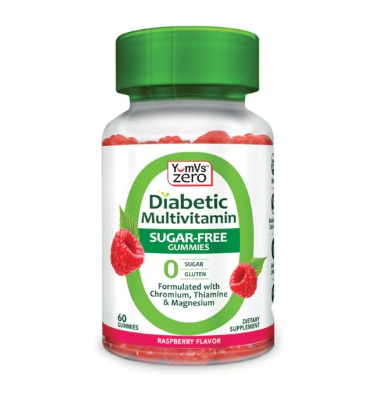Ever feel like you’re doing all the “right” things, eating a balanced diet, staying active, managing stress, and yet your blood sugar levels still seem to have a mind of their own? Your gut microbiome may be to blame.
For a long time, we thought of the gut as a digestive system for breaking down food and absorbing nutrients. However, new research is finding that our gut is more like a second brain. The tiny bacteria, viruses and fungi living within our gut have a direct impact on everything from our mood to our weight, and even on how our bodies manage blood sugar.
So, what exactly is this mysterious gut microbiome, and how can it be the key to improving blood sugar control?
What Is the gut microbiome?
You can think of your gut as a city. Within this city, millions of different residents, including bacteria, fungi and viruses, all live together. A healthy, balanced city has a diverse population, with lots of different kinds of residents all doing their part to keep the city running smoothly.
A “healthy” gut microbiome means having a wide variety of different species of beneficial bacteria. These beneficial bacteria help us digest food, produce essential vitamins and even communicate with our immune systems.
On the other hand, an unhealthy gut lacks diversity, with bad bacteria outnumbering the good ones. This imbalance, also called dysbiosis, is where the problems begin.
How do gut microbes control blood sugar?
So, how do these tiny organisms influence your blood sugar and metabolism? Your gut microbes are constantly interacting with your body in several ways that directly impact your blood sugar.
They ferment fiber
Your body can’t digest fiber, but your gut bacteria can. They consume the indigestible fiber from the foods you eat and, in the process, produce short-chain fatty acids (SCFAs). The most well-known SCFA is butyrate.
SCFAs improve insulin sensitivity, meaning your cells become more responsive to insulin and can absorb glucose from your bloodstream more effectively. They also help reduce inflammation in the gut, a major contributor to insulin resistance.
They regulate gut hormones
Your gut releases hormones that play a role in blood sugar control. One of the most important is glucagon-like peptide-1 (GLP-1). You have probably heard of GLP-1 Receptor Agonists, a class of diabetes and weight loss medications that mimic the action of this hormone.
A healthy, diverse microbiome helps stimulate the release of GLP-1, which in turn tells your pancreas to produce more insulin and slows down how quickly your stomach empties. This leads to better blood sugar control and a feeling of fullness.
They control inflammation
When your gut microbiome is out of balance, it can lead to a condition known as “leaky gut.” This is when the lining of your intestine becomes permeable, allowing harmful toxins and food particles to leak into your bloodstream. Your immune system sees these as foreign invaders and goes into overdrive, creating a state of chronic, low-grade inflammation. Chronic inflammation is a major driver of insulin resistance.
The importance of fiber
So, if a healthy gut is so important, why are so many of us struggling with dysbiosis? The standard diet today is often to blame. It is rich in processed foods, sugar and unhealthy fats, and low in the most important thing our gut microbes need to thrive – fiber.
A highly processed diet essentially starves your beneficial gut microbes, resulting in a less diverse and less functional gut microbiome. Over time, this contributes to worsening blood sugar control.
5 steps to help your gut and improve your blood sugar
The good news is, unlike other factors in our health, you have a significant amount of control over your gut microbiome by making dietary and lifestyle changes. Here are a few things you can do to help improve your gut microbiome:
1. Focus on fiber
Your gut microbes thrive on fiber, so aim to make high-fiber foods a priority in your diet. There are two types of fiber, and both are important:
- Soluble fiber: This is the gooey, soft fiber that dissolves in water. It is found in foods such as oats, beans, peas, apples, citrus fruits and carrots.
- Insoluble fiber: This fiber doesn’t dissolve and acts like a broom, pushing waste through your digestive system. It’s great for regularity and is found in whole wheat products, nuts and many vegetables.
Aim to get fiber from a variety of sources. Try incorporating a handful of beans into your salad, snacking on an apple and starting your day with oatmeal.
2. Embrace fermented foods
Fermented foods contain living bacteria that can help increase good microbes within your gut.
Look for products that contain “live and active cultures.” This includes unsweetened yogurt, kefir, sauerkraut, kimchi and kombucha. Remember to check the labels on foods like yogurt and kombucha to avoid added sugars that can spike blood sugar levels.
3. Consume prebiotics
Prebiotics are special types of fiber that your beneficial gut bacteria love to eat, helping them multiply and thrive.
Prebiotic-rich foods include garlic, onions, asparagus, bananas and whole grains. Pairing these with probiotic-rich foods is a powerful combination for gut health.
4. Minimize processed foods
Just as important as adding the good stuff is reducing the not-so-good stuff. Highly processed foods, sugary drinks, and artificial sweeteners can all have a negative impact on your gut microbiome. Limiting these foods helps starve the “bad” bacteria, giving your beneficial bacteria a better chance to survive.
5. Importance of lifestyle
Your gut is deeply connected to your brain. Stress, poor sleep and a sedentary lifestyle can all harm your gut microbiome.
Try incorporating stress-reducing practices like meditation or deep breathing. Aim for 7-9 hours of quality sleep per night and exercise regularly to help increase the beneficial bacteria in your gut.
In summary
The gut microbiome is an important but often overlooked factor in blood sugar management. By prioritizing fiber-rich whole foods, incorporating fermented options and making positive lifestyle choices, you can nurture your gut health, support steady blood sugar levels and strengthen your overall well-being from the inside out.




